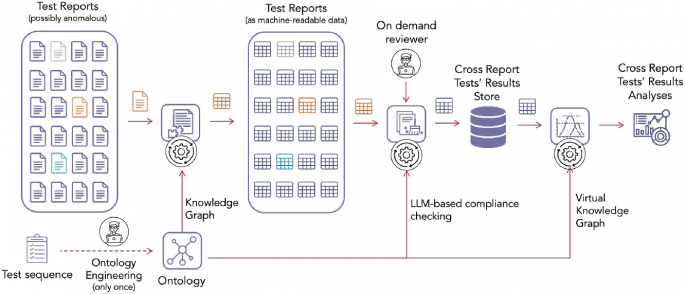Large manufacturing companies in mission-critical sectors like aerospace, healthcare, and defense, typically design, develop, integrate, verify, and validate products characterized by high complexity and low volume. They carefully document all phases for each product but analyses across products are challenging due to the heterogeneity and unstructured nature of the data in documents. In our research, … Continue reading Integrating Large Language Models and Knowledge Graphs for Extraction and Validation of Textual Data
Category: data science
Policy Sandboxing: Empathy As An Enabler Towards Inclusive Policy-Making
Digitally-supported participatory methods are often used in policy-making to develop inclusive policies by collecting and integrating citizen's opinions. However, these methods fail to capture the complexity and nuances in citizen's needs, i.e., citizens are generally unaware of other's needs, perspectives, and experiences. Consequently, policies developed with this underlying gap tend to overlook the alignment of … Continue reading Policy Sandboxing: Empathy As An Enabler Towards Inclusive Policy-Making
Discovering Hidden Communication Patterns and Informal Organization in Companies through Graph Analysis
In this study, we present a comprehensive framework for capturing, processing, and analyzing large-scale digital communication data to uncover hidden informal communication patterns within a real-world corporate environment. We run our study on a unique dataset of 40.425.247 email messages exchanged within a banking company, spanning a two-year period. Based on this information, we construct … Continue reading Discovering Hidden Communication Patterns and Informal Organization in Companies through Graph Analysis
M.Sc. Thesis Topics and Proposals at Polimi Data Science Lab – 2023/24
Within the context of our Data Science Lab and research team, we offer a variety of thesis options. Check them out in these slide decks: https://www.slideshare.net/slideshow/embed_code/key/44O3NXu3iERiyS?hostedIn=slideshare&page=upload https://www.slideshare.net/slideshow/embed_code/key/xg4X4dr14ySsWt?hostedIn=slideshare&page=upload
Hierarchical Transformers for User Semantic Similarity.
We discuss the use of hierarchical transformers for user semantic similarity in the context of analyzing users' behavior and profiling social media users. The objectives of the research include finding the best model for computing semantic user similarity, exploring the use of transformer-based models, and evaluating whether the embeddings reflect the desired similarity concept and can be used for other tasks.
Online courses on Data, Policies, and COVID-19
Five online courses (MOOCs) that collect technical and policy solutions to pandemic challenges have been published on Coursera
Exploring the bi-verse: a trip across the digital and physical ecospheres
I've been invited to give a keynote talk at the WISE 2022 Conference. Thinking about it, I decided to focus on my idea of a bi-verse. To me, the bi-verse is the duality between the physical and digital worlds. On one side, the Web and social media are the environments where people post their content, … Continue reading Exploring the bi-verse: a trip across the digital and physical ecospheres
The Role of Human Knowledge in Explainable AI
We published a review article that aims to present a literature overview on collecting and employing human knowledge to improve and evaluate the understandability of machine learning models through human-in-the-loop approaches.
The VaccinEU dataset of COVID-19 Vaccine Conversations on Twitter in French, German, and Italian
Despite the increasing limitations for unvaccinated people, in many European countries, there is still a non-negligible fraction of individuals who refuse to get vaccinated against SARS-CoV-2, undermining governmental efforts to eradicate the virus. Within the PERISCOPE project, we studied the role of online social media in influencing individuals' opinions about getting vaccinated by designing a … Continue reading The VaccinEU dataset of COVID-19 Vaccine Conversations on Twitter in French, German, and Italian
EXP-Crowd: Gamified Crowdsourcing for AI Explainability
The spread of AI and black-box machine learning models makes it necessary to explain their behavior. Consequently, the research field of Explainable AI was born. The main objective of an Explainable AI system is to be understood by a human as the final beneficiary of the model. In our research we just published on Frontiers … Continue reading EXP-Crowd: Gamified Crowdsourcing for AI Explainability




